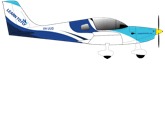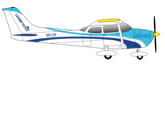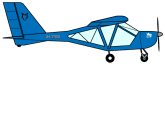Since flight training is competency-based, there are no times limits imposed on completing courses. Overseas students flying in Australia will however need to be aware of time limits relating to their visa. Some components of theory, licences and endorsements do have expiry or maintenance periods but this can be easily managed during your flight training.
Category: Flight Training
Is there much home study? Do you provide online theory training?
How you decide to manage your time between studying at flight school and studying at home is up to you. Experience shows that those who are able to spend more time studying at flight school tend to absorb more knowledge.
If you’re spending enough time at flight school then you may not need to study much at home, but if you aren’t then we recommend that you study fairly regularly at home so that you retain what you have learnt and are ready for your next lesson.
In addition, we provide online training via our student portal. We offer the following theory courses
- Recreational Pilot Licence (RPL) Theory Course
- Private Pilot Licence (PPL) Theory Course
- Commercial Pilot Licence (CPL) Theory Course
- Instrument Rating Theory Examination (IREX) Theory Course
What is a flight review and do I need to have one?
A flight review is an opportunity to receive training that refreshes your flying skills and operational knowledge. Pilots undertake flight reviews to ensure they continue to be competent flying particular types of aircraft or exercising the privileges of an operational rating.
After gaining a qualification, it is normal for some skills to deteriorate over time. A flight review ensures your piloting skills remain or are brought back up to standard. Flight reviews are also used to meet the International Civil Aviation Organization (ICAO) requirement for countries to ensure pilots continue to be competent in exercising the privileges of their licences and ratings.
If you hold a pilot licence, rating, or endorsement, and are unsure whether you require a flight review to demonstrate certain aspects of your qualifications, then please contact us.
What is a proficiency check and do I need to have one?
A proficiency check is an assessment of your skills and knowledge in a particular operational area. Pilots are required to undertake proficiency checks to ensure they continue to be competent in conducting particular kinds of operations.
After gaining a qualification, it is normal for some skills to deteriorate over time. A proficiency check ensures your piloting skills continue to meet the standards described in the Part 61 Manual of Standards, and where applicable, those of your operator.
The following proficiency checks are prescribed under Part 61:
- Instrument rating proficiency check (IPC)
- Instructor rating proficiency check
- Examiner rating proficiency check
- Aerial application rating proficiency check
- Night vision imaging system proficiency check
You can find out more about proficiency checks on the CASA website.
What types of exams will I need to pass to get my pilot licence?
For each pilot licence, you are required to pass 3 types of exams – an oral test, written test and practical flying test.
-
- Written Test: This is a multiple-choice test that covers all areas of aviation theory relating to your licence course. There are many resource guides available to assist with preparation including books, mock exam questions, and the best resource of all – your Learn To Fly instructors and fellow students. We recommend spending as much time studying at school as you can, as well as time outside of school studying on your own. Most written aviation theory exams require a 70% pass mark.
-
- Oral Test: The day you take your practical flying test in the aircraft, your Flight Examiner will conduct an oral interview where you will be asked to discuss all the theory and knowledge areas you’ve studied during the course. This includes aircraft systems, weather, aerodynamics, air laws, airport operations, airspace designations and operations, charts, aircraft performance, and much more. The oral exam requires study, preparation and understanding on your part. Your flight instructor will be able to assist you with preparation, as will your fellow students (especially those with the first-hand experience completing the exam).
- Practical Test: Your practical flying test takes place in the aircraft, and this is where all your training comes together. You will fly with an official flight Flight Examiner who will ask you to perform all the manoeuvres and skills you have been working on from the beginning of your flight training. Your flight instructor will assist you in preparing for the actual test scenario in your flights leading up to the test.
Do you offer full time courses?
Yes we do, we offer full time courses for both local and international students.


